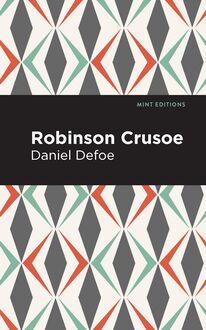-
 Univers
Univers
-
 Ebooks
Ebooks
-
 Livres audio
Livres audio
-
 Presse
Presse
-
 Podcasts
Podcasts
-
 BD
BD
-
 Documents
Documents
-
- Cours
- Révisions
- Ressources pédagogiques
- Sciences de l’éducation
- Manuels scolaires
- Langues
- Travaux de classe
- Annales de BEP
- Etudes supérieures
- Maternelle et primaire
- Fiches de lecture
- Orientation scolaire
- Méthodologie
- Corrigés de devoir
- Annales d’examens et concours
- Annales du bac
- Annales du brevet
- Rapports de stage
La lecture à portée de main
Vous pourrez modifier la taille du texte de cet ouvrage
Découvre YouScribe en t'inscrivant gratuitement
Je m'inscrisDécouvre YouScribe en t'inscrivant gratuitement
Je m'inscrisEn savoir plus
Vous pourrez modifier la taille du texte de cet ouvrage
En savoir plus

Description
Following the events of The Scarlet Pimpernel, the mysterious figure continues his efforts to elude captors, while saving French aristocrats from meeting a brutal fate. It’s a collection of memorable stories featuring various characters and hidden obstacles along the way.
The Reign of Terror during the French Revolution continues to cripple the country’s aristocracy. The Scarlet Pimpernel has managed to maintain his secret identity, while saving those on the chopping block. In The League of the Scarlet Pimpernel, his latest adventures are told across 11 thrilling stories. Some of the titles include “A Question of Passports,” “The Old Scarecrow,” and “How Jean-Pierre Met the Scarlet Pimpernel.”
In The League of the Scarlet Pimpernel, Baroness Orczy expands this terrifying yet vibrant portrait of eighteenth-century France. The stakes are higher as both the aristocracy and its hero face looming danger. This book is an exciting narrative filled with unexpected twists and turns.
With an eye-catching new cover, and professionally typeset manuscript, this edition of The League of the Scarlet Pimpernel is both modern and readable.
Sujets
Informations
| Publié par | Mint Editions |
| Date de parution | 02 mars 2021 |
| Nombre de lectures | 1 |
| EAN13 | 9781513277189 |
| Langue | English |
| Poids de l'ouvrage | 2 Mo |
Informations légales : prix de location à la page 0,0500€. Cette information est donnée uniquement à titre indicatif conformément à la législation en vigueur.
Extrait
The League of the Scarlet Pimpernel
Baroness Emmuska Orczy
The League of the Scarlet Pimpernel was first published in 1919.
This edition published by Mint Editions 2021.
ISBN 9781513272184 | E-ISBN 9781513277189
Published by Mint Editions®
minteditionbooks.com
Publishing Director: Jennifer Newens
Design & Production: Rachel Lopez Metzger
Project Manager: Micaela Clark
Typesetting: Westchester Publishing Services
C ONTENTS I . S IR P ERCY E XPLAINS II . A Q UESTION OF P ASSPORTS III . T WO G OOD P ATRIOTS IV . T HE O LD S CARECROW V . A F INE B IT OF W ORK VI . H OW J EAN P IERRE M ET THE S CARLET P IMPERNEL VII . O UT OF THE J AWS OF D EATH VIII . T HE T RAITOR IX . T HE C ABARET DE LA L IBERTE X . “ N EEDS M UST—” XI . A B ATTLE OF W ITS
I
S IR P ERCY E XPLAINS
I
I T WAS NOT, H EAVE N HELP us all! a very uncommon occurrence these days: a woman almost unsexed by misery, starvation, and the abnormal excitement engendered by daily spectacles of revenge and of cruelty. They were to be met with every day, round every street corner, these harridans, more terrible far than were the men.
This one was still comparatively young, thirty at most; would have been good-looking too, for the features were really delicate, the nose chiselled, the brow straight, the chin round and small. But the mouth! Heavens, what a mouth! Hard and cruel and thin-lipped; and those eyes! sunken and rimmed with purple; eyes that told tales of sorrow and, yes! of degradation. The crowd stood round her, sullen and apathetic; poor, miserable wretches like herself, staring at her antics with lack-lustre eyes and an ever-recurrent contemptuous shrug of the shoulders.
The woman was dancing, contorting her body in the small circle of light formed by a flickering lanthorn which was hung across the street from house to house, striking the muddy pavement with her shoeless feet, all to the sound of a be-ribboned tambourine which she struck now and again with her small, grimy hand. From time to time she paused, held out the tambourine at arm’s length, and went the round of the spectators, asking for alms. But at her approach the crowd at once seemed to disintegrate, to melt into the humid evening air; it was but rarely that a greasy token fell into the outstretched tambourine. Then as the woman started again to dance the crowd gradually reassembled, and stood, hands in pockets, lips still sullen and contemptuous, but eyes watchful of the spectacle. There were such few spectacles these days, other than the monotonous processions of tumbrils with their load of aristocrats for the guillotine!
So the crowd watched, and the woman danced. The lanthorn overhead threw a weird light on red caps and tricolour cockades, on the sullen faces of the men and the shoulders of the women, on the dancer’s weird antics and her flying, tattered skirts. She was obviously tired, as a poor, performing cur might be, or a bear prodded along to uncongenial buffoonery. Every time that she paused and solicited alms with her tambourine the crowd dispersed, and some of them laughed because she insisted.
“Voyons,” she said with a weird attempt at gaiety, “a couple of sous for the entertainment, citizen! You have stood here half an hour. You can’t have it all for nothing, what?”
The man—young, square-shouldered, thick-lipped, with the look of a bully about his well-clad person—retorted with a coarse insult, which the woman resented. There were high words; the crowd for the most part ranged itself on the side of the bully. The woman backed against the wall nearest to her, held feeble, emaciated hands up to her ears in a vain endeavour to shut out the hideous jeers and ribald jokes which were the natural weapons of this untamed crowd.
Soon blows began to rain; not a few fell upon the unfortunate woman. She screamed, and the more she screamed the louder did the crowd jeer, the uglier became its temper. Then suddenly it was all over. How it happened the woman could not tell. She had closed her eyes, feeling sick and dizzy; but she had heard a loud call, words spoken in English (a language which she understood), a pleasant laugh, and a brief but violent scuffle. After that the hurrying retreat of many feet, the click of sabots on the uneven pavement and patter of shoeless feet, and then silence.
She had fallen on her knees and was cowering against the wall, had lost consciousness probably for a minute or two. Then she heard that pleasant laugh again and the soft drawl of the English tongue.
“I love to see those beggars scuttling off, like so many rats to their burrows, don’t you, Ffoulkes?”
“They didn’t put up much fight, the cowards!” came from another voice, also in English. “A dozen of them against this wretched woman. What had best be done with her?”
“I’ll see to her,” rejoined the first speaker. “You and Tony had best find the others. Tell them I shall be round directly.”
It all seemed like a dream. The woman dared not open her eyes lest reality—hideous and brutal—once more confronted her. Then all at once she felt that her poor, weak body, encircled by strong arms, was lifted off the ground, and that she was being carried down the street, away from the light projected by the lanthorn overhead, into the sheltering darkness of a yawning porte cochere. But she was not then fully conscious.
II
W HEN SHE REOPENED HER EYES she was in what appeared to be the lodge of a concierge. She was lying on a horsehair sofa. There was a sense of warmth and of security around her. No wonder that it still seemed like a dream. Before her stood a man, tall and straight, surely a being from another world—or so he appeared to the poor wretch who, since uncountable time, had set eyes on none but the most miserable dregs of struggling humanity, who had seen little else but rags, and faces either cruel or wretched. This man was clad in a huge caped coat, which made his powerful figure seem preternaturally large. His hair was fair and slightly curly above his low, square brow; the eyes beneath their heavy lids looked down on her with unmistakable kindness.
The poor woman struggled to her feet. With a quick and pathetically humble gesture she drew her ragged, muddy skirts over her ankles and her tattered kerchief across her breast.
“I had best go now, Monsieur… citizen,” she murmured, while a hot flush rose to the roots of her unkempt hair. “I must not stop here… I—”
“You are not going, Madame,” he broke in, speaking now in perfect French and with a great air of authority, as one who is accustomed to being implicitly obeyed, “until you have told me how, a lady of culture and of refinement, comes to be masquerading as a street-dancer. The game is a dangerous one, as you have experienced to-night.”
“It is no game, Monsieur… citizen,” she stammered; “nor yet a masquerade. I have been a street-dancer all my life, and—”
By way of an answer he took her hand, always with that air of authority which she never thought to resent.
“This is not a street-dancer’s hand; Madame,” he said quietly. “Nor is your speech that of the people.”
She drew her hand away quickly, and the flush on her haggard face deepened.
“If you will honour me with your confidence, Madame,” he insisted.
The kindly words, the courtesy of the man, went to the poor creature’s heart. She fell back upon the sofa and with her face buried in her arms she sobbed out her heart for a minute or two. The man waited quite patiently. He had seen many women weep these days, and had dried many a tear through deeds of valour and of self-sacrifice, which were for ever recorded in the hearts of those whom he had succoured.
When this poor woman had succeeded in recovering some semblance of self-control, she turned her wan, tear-stained face to him and said simply:
“My name is Madeleine Lannoy, Monsieur. My husband was killed during the emeutes at Versailles, whilst defending the persons of the Queen and of the royal children against the fury of the mob. When I was a girl I had the misfortune to attract the attentions of a young doctor named Jean Paul Marat. You have heard of him, Monsieur?”
The other nodded.
“You know him, perhaps,” she continued, “for what he is: the most cruel and revengeful of men. A few years ago he threw up his lucrative appointment as Court physician to Monseigneur le Comte d’Artois, and gave up the profession of medicine for that of journalist and politician. Politician! Heaven help him! He belongs to the most bloodthirsty section of revolutionary brigands. His creed is pillage, murder, and revenge; and he chooses to declare that it is I who, by rejecting his love, drove him to these foul extremities. May God forgive him that abominable lie! The evil we do, Monsieur, is within us; it does not come from circumstance. I, in the meanwhile, was a happy wife. My husband, M. de Lannoy, who was an officer in the army, idolised me. We had one child, a boy—”
She paused, with another catch in her throat. Then she resumed, with calmness that, in view of the tale she told, sounded strangely weird:
“In June last year my child was stolen from me—stolen by Marat in hideous revenge for the supposed wrong which I had done him. The details of that execrable outrage are of no importance. I was decoyed from home one day through the agency of a forged message purporting to come from a very dear friend whom I knew to be in grave trouble at the time. Oh! the whole thing was thoroughly well thought out, I can assure you!” she continued, with a harsh laugh which ended in a heartrending sob. “The forged message, the suborned servant, the threats of terrible reprisals if anyone in the village gave me the slightest warning or clue. When the whole miserable business was accomplished, I was just like a trapped animal inside a cage, held captive by immovable bars of obstinate silence and cruel indifference. No one would help me. No one ostensibly knew anything; no one had seen anything, heard anything. The child was g
-
 Univers
Univers
-
 Ebooks
Ebooks
-
 Livres audio
Livres audio
-
 Presse
Presse
-
 Podcasts
Podcasts
-
 BD
BD
-
 Documents
Documents
-
Jeunesse
-
Littérature
-
Ressources professionnelles
-
Santé et bien-être
-
Savoirs
-
Education
-
Loisirs et hobbies
-
Art, musique et cinéma
-
Actualité et débat de société
-
Jeunesse
-
Littérature
-
Ressources professionnelles
-
Santé et bien-être
-
Savoirs
-
Education
-
Loisirs et hobbies
-
Art, musique et cinéma
-
Actualité et débat de société
-
Actualités
-
Lifestyle
-
Presse jeunesse
-
Presse professionnelle
-
Pratique
-
Presse sportive
-
Presse internationale
-
Culture & Médias
-
Action et Aventures
-
Science-fiction et Fantasy
-
Société
-
Jeunesse
-
Littérature
-
Ressources professionnelles
-
Santé et bien-être
-
Savoirs
-
Education
-
Loisirs et hobbies
-
Art, musique et cinéma
-
Actualité et débat de société
- Cours
- Révisions
- Ressources pédagogiques
- Sciences de l’éducation
- Manuels scolaires
- Langues
- Travaux de classe
- Annales de BEP
- Etudes supérieures
- Maternelle et primaire
- Fiches de lecture
- Orientation scolaire
- Méthodologie
- Corrigés de devoir
- Annales d’examens et concours
- Annales du bac
- Annales du brevet
- Rapports de stage




















